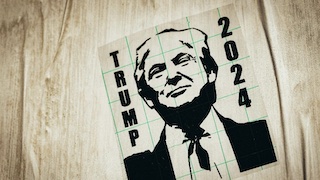Jul 12 (newsonjapan.com) - In this comprehensive guide, we will delve into the best practices and methods for storing Chia safely and securely.
Whether you're a seasoned Chia farmer or just starting your journey, protecting your precious digital assets is of utmost importance. By following the tips and techniques outlined in this article, you can ensure the safety and longevity of your Chia holdings. If you want to invest in Bitcoin then you can visit online trading platforms like https://bitindexai.top/
Understanding the Importance of Secure Storage
Before we dive into the specifics, let's take a moment to understand why secure storage is crucial when it comes to Chia (XCH). Chia is a decentralized cryptocurrency that utilizes a proof-of-space and proof-of-time consensus mechanism, making it a unique and innovative digital asset. As with any cryptocurrency, ensuring the security of your Chia holdings is vital to protect against unauthorized access, theft, or loss. By implementing robust storage practices, you can safeguard your Chia and have peace of mind.
Utilizing Hardware Wallets for Cold Storage
One of the most secure methods of storing Chia is by utilizing hardware wallets, also known as cold storage devices. These wallets are specifically designed to keep your private keys offline, away from potential hackers and online threats. By storing your Chia on a hardware wallet, you can significantly reduce the risk of unauthorized access or theft. Some popular hardware wallet options for Chia include Ledger and Trezor. It's important to purchase hardware wallets directly from reputable sources to avoid counterfeit products.
Setting Up a Paper Wallet
If you prefer an alternative to hardware wallets, setting up a paper wallet is another secure option. A paper wallet involves generating a Chia wallet address and corresponding private key offline and printing them on a physical piece of paper. This method keeps your private key completely offline, making it highly resistant to hacking attempts. However, it's essential to store your paper wallet in a secure location, preferably in a fireproof safe or a safety deposit box. Remember to keep multiple copies of your paper wallet and ensure they are all stored securely.
Encrypting Digital Wallets
For those who choose to store their Chia digitally, it's crucial to implement robust security measures. One such measure is encrypting your digital wallets. Encryption adds an extra layer of protection to your wallet files, making them inaccessible without the correct passphrase. Ensure you choose a strong and unique passphrase, avoiding commonly used words or personal information. Additionally, regularly back up your encrypted wallet files to external storage devices, such as USB drives or external hard drives, and store them separately from your main computer or device.
Implementing Two-Factor Authentication (2FA)
Another effective security measure to protect your Chia holdings is implementing two-factor authentication (2FA). By enabling 2FA, you add an extra layer of verification when accessing your Chia wallets or accounts. This typically involves a combination of something you know (e.g., a password) and something you possess (e.g., a code generated by a mobile app). Two-factor authentication helps prevent unauthorized access even if your password gets compromised. Many Chia wallets and exchanges offer 2FA options, so be sure to take advantage of this feature.
Regularly Updating Software and Wallets
To maintain optimal security, it's crucial to keep your software and wallets up to date. Developers often release updates and patches to address security vulnerabilities and enhance the overall functionality of their software. By regularly updating your Chia wallet software, you ensure that you have the latest security enhancements and bug fixes. Keep an eye on the official Chia website or community forums for announcements regarding wallet updates, and follow the recommended update procedures to stay protected.
Creating Secure Backup Strategies
A robust backup strategy is an essential aspect of secure Chia storage. It's advisable to create multiple backups of your Chia wallets and private keys to ensure redundancy and safeguard against data loss. Consider storing backups in diverse locations, such as encrypted cloud storage services, external hard drives, or even physical copies in secure locations. By maintaining regular backups and testing the restoration process, you can mitigate the risk of permanent data loss and recover your Chia holdings if needed.
Conclusion
In conclusion, the safe and secure storage of Chia (XCH) is paramount for every Chia holder. By following the best practices outlined in this article, including considering utilizing hardware wallets or paper wallets for cold storage, encrypting your digital wallets, implementing two-factor authentication, regularly updating software and wallets, and creating secure backup strategies, you can significantly reduce the risk of unauthorized access, theft, or loss of your Chia holdings. These measures are crucial for safeguarding your digital assets and ensuring peace of mind.
It's worth mentioning that there are various online trading platforms available in the market, such as Bitcoin Era which is an Online trading platform. However, when it comes to storing and securing your Chia, it's important to focus on the best practices mentioned earlier. By implementing these security measures, you can protect your Chia holdings from potential threats and vulnerabilities.















